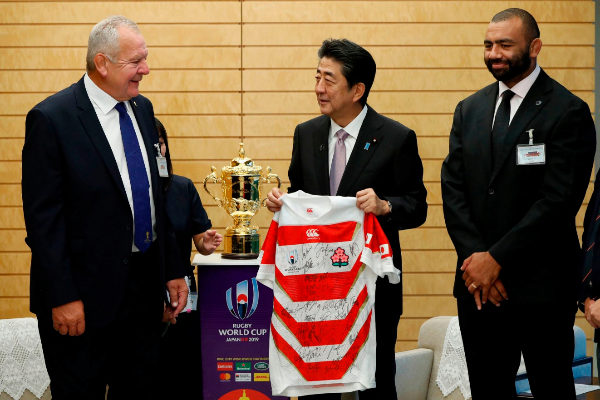Even rugby, perhaps the most dedicated mass sport to tradition, succumbs to the temptations of the 21st century. The World Cup was always played in the most traditional countries of the oval ball, either in the Europeans of the Six Nations , or in those in the southern hemisphere that dispute the Championship . As of Friday, however, the 20 best national teams in the world will beat copper in Japan , an exotic destination, no matter how much it is the Asian country with the greatest tradition - long - of that continent.
Times change, and just like basketball has been handed over to China and soccer will be delivered to Qatar, rugby does it to Japan. A designation that responds to the ambition to expand the fondness for the sport of oval ball in Asia and to open new markets outside the more traditional ones. It is not that rugby is an entirely strange sport for the Japanese, but its impact is very limited, just 100,000 licenses in a country that exceeds 126 million inhabitants.
The expectation, however, is being remarkable: 36,000 people signed up to be one of the 10,000 volunteers required by the organization , which were eventually expanded to 13,000 to accommodate the maximum number possible. All of them will be in charge of assisting the around 400,000 foreign fans that are estimated to land in Japan this week. In this sense, this World Cup is also institutionally conceived as a general rehearsal for the Olympic Games that will be held next summer in Tokyo . The commitment made by World Rugby is, at least, risky. Not at the organizational level, because Japan offers no doubts about it, but about the response of local supporters. Even more after the success achieved in the previous edition of the World Cup, held in England in 2015, with a record attendance at stadiums of about 2.5 million spectators in the 48 games played, with an average occupancy of 95 % of seats . The latest official data provided by World Rugby is that 85% of the tickets have already been sold. "The Japanese love big events," reassures Brett Gosper, president of World Rugby .
Television audiences are also a focus of concern, especially in the European market, which is the most important of rugby. The matches will be played at times that, in Europe, range from 6 am to 11 am , an unusual range for sports broadcasts and general low consumption.
This week we talk about ...
THE RUGBY WORLD CUP
THE 20 SELECTIONS IN LIZA
THE TABLE OF THE TOURNAMENT
NEW ZEALAND DEFENDS TITLE
Japan hosts from this Friday the most important tournament of world rugby teams. The competition will last for a month and a half until the grand final, scheduled for November 2 at the Yokohama International Stadium.
Eight European (France, England, Scotland, Wales, Italy, Ireland, Georgia and Russia), four American (Argentina, USA, Canada and Uruguay), five oceanic (Australia, New Zealand, Fiji, Tonga and Samoa), two African ( South Africa and Namibia) and an Asian (Japan).
A first phase consists of four groups of five selections. The first two qualify for the quarterfinals. The first three of each group, in addition, directly pick up the ticket for the next World Cup, that of France 2023.
The All Blacks, with their captain Kieran Read in front, defend their title and aspire to achieve their fourth World Cup, the third straight after winning in 2011 and 2015. England and Ireland are a priori the teams with the most options to stop New Zealand .
According to the criteria of The Trust Project
Know more- sports
- Olympic Games
- more sport
- More sports Olympics
- rugby
- Rugby Olympics
More SportsCarlos Arévalo, a military man in canoeing: "Army discipline has helped me"
Canoeing When shining in the World Cup puts you in trouble
Blanca Fernández Ochoa carried all the medication she had prescribed

